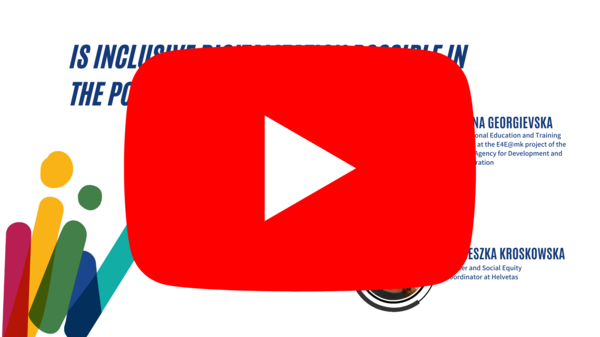The pandemic has quickened the pace of digitalization. To effectively tap into the opportunities, it’s important to consider the needs and capacities of the most vulnerable in society. Also, digitalization is about much more than economic and social issues—it’s also a fundamental human right issue concerning the right to privacy, expression and movement.
Young people, women and other vulnerable groups are a target group of the regional programme RECONOMY—so, in this episode we’ll talk about how can benefits of digitalization of education be more inclusive to the more often “left behind”? What can the Western Balkan countries learn from Estonia? And is blended learning the future? How is vocational education and training affected?
Here is the fourth episode of the Inclusive Plug series. We have interviewed:
- Ivana Georgievska is the Vocational Education and Training Expert at the Education for Employment project in North Macedonia. She has more than 10 years of experience working on the Vocational Education and Training system.
- Triin Laasi is the Director of Tallinn School of Economics, one of the oldest vocational schools in Estonia. Previously, she has worked in the field of education, leading various education institutions.
- Agnieszka Kroskowska is the Gender and Social Equity Coordinator at Helvetas, supporting the organization to walk the talk at institutional and country program levels.
Click below on the video to watch this episode.
Also, please let us know whether you agree or disagree with the ideas expressed by our guests and send us your feedback or comments.
We have interesting topics coming up, so stay tuned and hit the subscribe button in the video!


